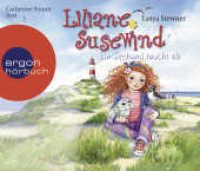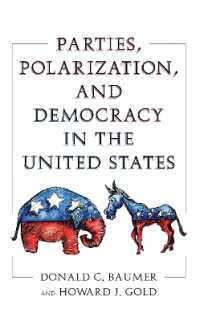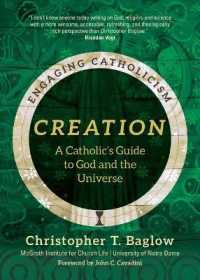- ホーム
- > 洋書
- > 英文書
- > Business / Economics
Full Description
Some goods are freely traded as commodities without question or controversy. For other goods, their commodification - their being made available in exchange for money, or their being subject to market valuation and exchange - is hotly contested. "Contested" commodities range from labour and land, to votes, healthcare, and education, to human organs, gametes, and intimate services, to parks and emissions. But in the context of a market economy, what distinguishes these goods as non-commodifiable, or what defines them as contestable commodities? And why should their status as such justify restricting the market choices of rationally consenting parties to otherwise voluntary exchanges?
This volume draws together wide-ranging, interdisciplinary research on the legitimate scope of markets and the kinds of goods that should be exempt therefrom. In bringing diverse answers to this question together for the first time, it finally identifies commodification studies as a unique field of scholarly research in its own right. In so doing, it fosters interdisciplinary dialogue, advances scholarship, and enhances education in this controversial, important, and growing field of research. Contemporary theorists who examine this question do so from across the disciplinary spectrum and ground their answers in diverse scholarly literature and divergent methodological approaches. Their arguments will be of interest to scholars and students of philosophy, economics, law, political science, sociology, policy, feminist theory, and ecology, among others.
The contributors to this volume take diverse and divergent positions on the benefits of markets in general and on the possible harms of specific contested markets in particular. While some favour free markets and others regulation or prohibition, and while some engage in more normative and others in more empirical analysis, the contributors all advance nuanced and thoughtful arguments that engage deeply with the complex set of moral and empirical questions at the heart of commodification studies. This volume collects their new and provocative work together for the first time.
Contents
Introduction - Vida Panitch and Elodie Bertrand Part 1: Commodification studies: past and present Chapter 1 Commodification: The traditional pro-market arguments - Marie Daou and Alain Marciano Chapter 2 Classical anti-commodification arguments - Nicolas Postel and Richard Sobel Chapter 3 Contemporary anti-commodification arguments: Market failures - Elodie Bertrand Chapters 4 Contemporary anti-commodification arguments: Corruption, Inequality, and Justice - Vida Panitch Chapter 5 Sociology of moral contestation of exchange institutions - Philippe Steiner Part 2: A history of contested commodities Chapter 6 Land - Pierre Crétois Chapter 7 Usury and simony - Pierre Januard and André Lapidus Chapter 8 Labour - François Vatin Chapter 9 Gambling - Marie Trespeuch Chapter 10 Insurance - Emily Nacol Part 3: Contested commodities and the state Chapter 11 Vote buying and campaign finance - Jason Brennan and Christopher Freiman Chapter 12 Health care - L. Chad Horne Chapter 13 Education - Harry Brighouse Chapter 14 Security and prisons - Jonathan Peterson Chapter 15 Cultural goods - Michael Joel Kessler Chapter 16 Care work - Jennifer Nedelsky Part 4: The body and intimacy as contested commodities Chapter 17 Human organs - James Stacey Taylor Chapter 18 Blood and Plasma - Peter M. Jaworski Chapter 19 Gametes - Kimberley D. Krawiec Chapter 20 Contract sex - Laurie J. Shrage Chapter 21 Surrogacy - Stephen Wilkinson Chapter 22 Adoption - Martha M. Ertman Part 5: Non-human nature and environment as contested commodities Chapter 23 Natural capital and biodiversity - John O'Neill Chapter 24 Emission trading - Nathalie Berta Chapter 25 Ecosystems - Julia Martin-Ortega, Paula Novo, Erik Gomez-Baggethun, Roldan Muradian, Ciaran Harte, and M. Azahara Mesa-Jurado Chapter 26 Water - Adrian Walsh Chapter 27 Animals - Aksel Braanen Sterri Chapter 28 Seed - Fabien Girard, Christine Frison, and Christine Noiville Chapter 29 Parks and forests - Catherine Larrère








